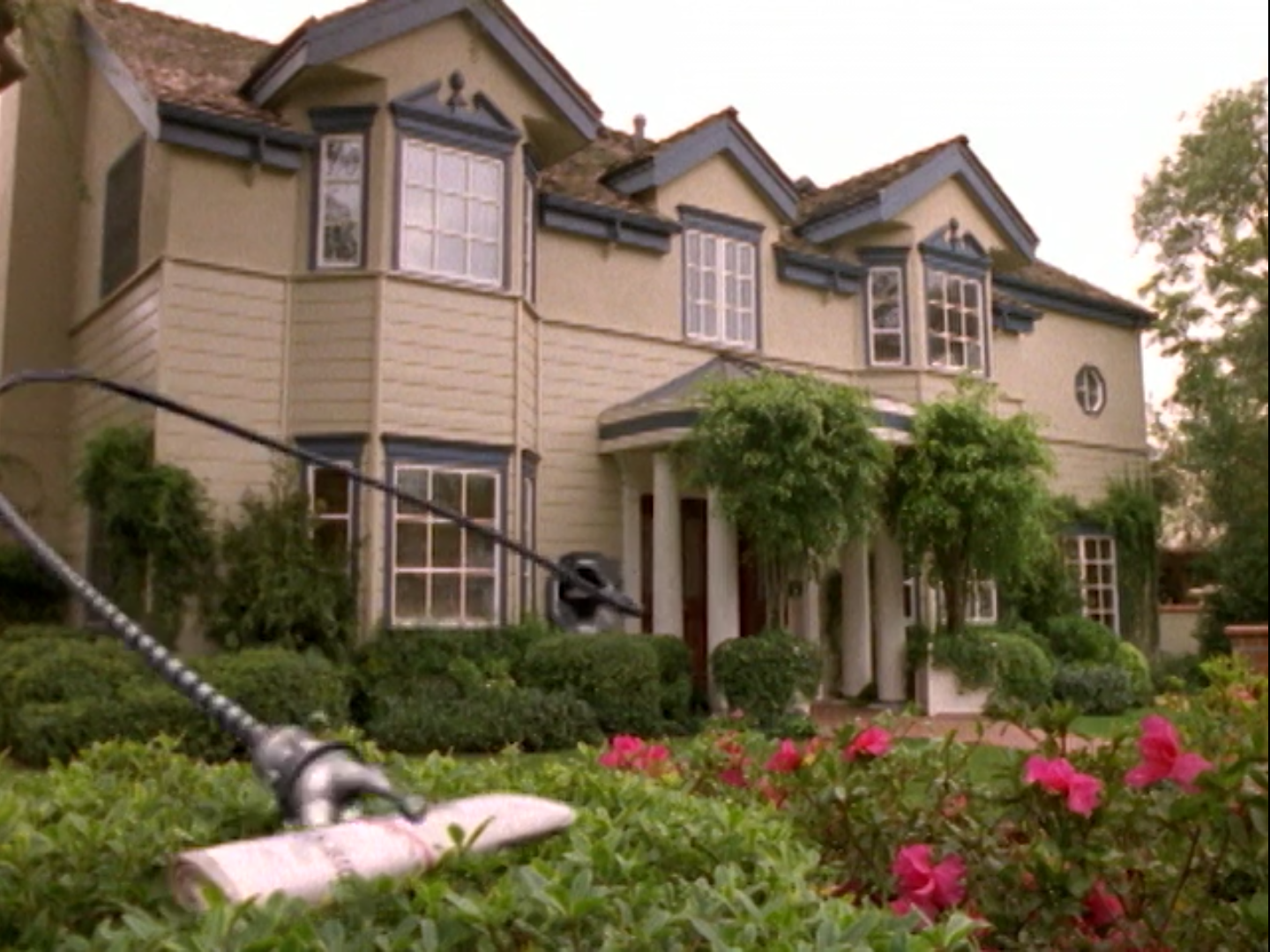The Disney Channel original movie “Smart House,” about a family that moves into a “house of the future” run by a built-in virtual assistant named Pat, was way ahead of its time.
When the movie came out in 1999, almost two decades ago, the world was still trying to figure out how to address the Y2K bug, and people didn’t have most of the technology in their houses that we use today. There were no smart devices (let alone smartphones), dial-up modems were the norm, and candy-colored Apple desktop computers were all the rage.
Sure, “Smart House” was a little far-fetched, but it did get some things right.
Here’s all the technology from the 1999 movie “Smart House” that we have now, almost 20 years later.
The centerpiece of "Smart House" — and today's smart homes — is an artificially intelligent smart assistant that learns more about its owners over time.

Pat would prick your finger to learn your entire medical history, and she would figure out your diet based on your breath. So she knew a little too much.
In "Smart House," the family relied on the voice-powered smart assistant to delegate tasks — which is almost exactly how it works today.

Pat, played by Katey Sagal, is a smart assistant like Alexa or Google Home - though in the movie, the house is run through a control room and a circuit board instead of a speaker or a system of speakers.
By the end of the movie, Pat could appear as a hologram. Thankfully, Alexa and Siri can't sneak up on us in the same way.
Both "Smart House" and today's smart-home devices support voice commands for controlling the temperature in your home.

When asked about the current temperature, Pat responded, "Climate control on target at 72.5 degrees."
Asking an intercom system to relay messages around the house for you is something you can actually do today.

Google Home and Amazon Echo devices can broadcast your voice to other smart speakers connected in your house (except, of course, for the Echo or Home you're using to make the command).
Today's AI assistants, like the one in "Smart House," can make selections and decisions based on your requests.

Pat shuffles through the contestants to choose a winner for the house similar to the way today's smart assistants can be asked to make decisions: by flipping a coin, rolling a die, playing rock-paper-scissors, choosing a number, and so on.
Smart-home devices can send messages to your contacts without your needing to pick up a phone.

Smart devices can turn your lights on and off — or dim them, or turn on colored lighting — with just your voice.

Smart-home devices can also play music based on the mood you specify.

Today's smart homes can create personalized alarms to wake you up.

Your smart devices can even make sure your coffee is ready when you are.

Like in "Smart House," smart homes can even keep your pet occupied while you're busy.

Today's pet tech includes automatic feeders, games of fetch for your dog, laser pointers for your cat, and even treadmills or exercise wheels.
Of course, we can make video calls at home now.

And there are plenty of motion-controlled video games with full-body interactivity.

Though when you're playing sports on a Wii console, there's not a physical ball that disappears into a wall and appears on the other side. Because that's magic.
"Smart House" even had a wall that doubled as a TV. At the CES trade show this year, Samsung this year introduced a similar product, called The Wall.

Samsung's absurd 146-inch TV is an entire wall - hence its name, 'The Wall' »
Today's smart homes can clean your floors without making you lift a finger.

Our floors might not absorb liquids (or solids), but robot vacuum cleaners can take care of crumbs and dust.
"Smart House" also correctly predicted automatic locks on your doors.

These days, though, the locks are controlled by you and (spoiler alert) not designed to hold people hostage the way Pat did before realizing that not being human meant she could never be the kids' mother.
The home in "Smart House" could do a lot of things that our houses still can't do — and will probably never be able to do — but it's fun to see how one decade's fiction can turn into another's reality.


